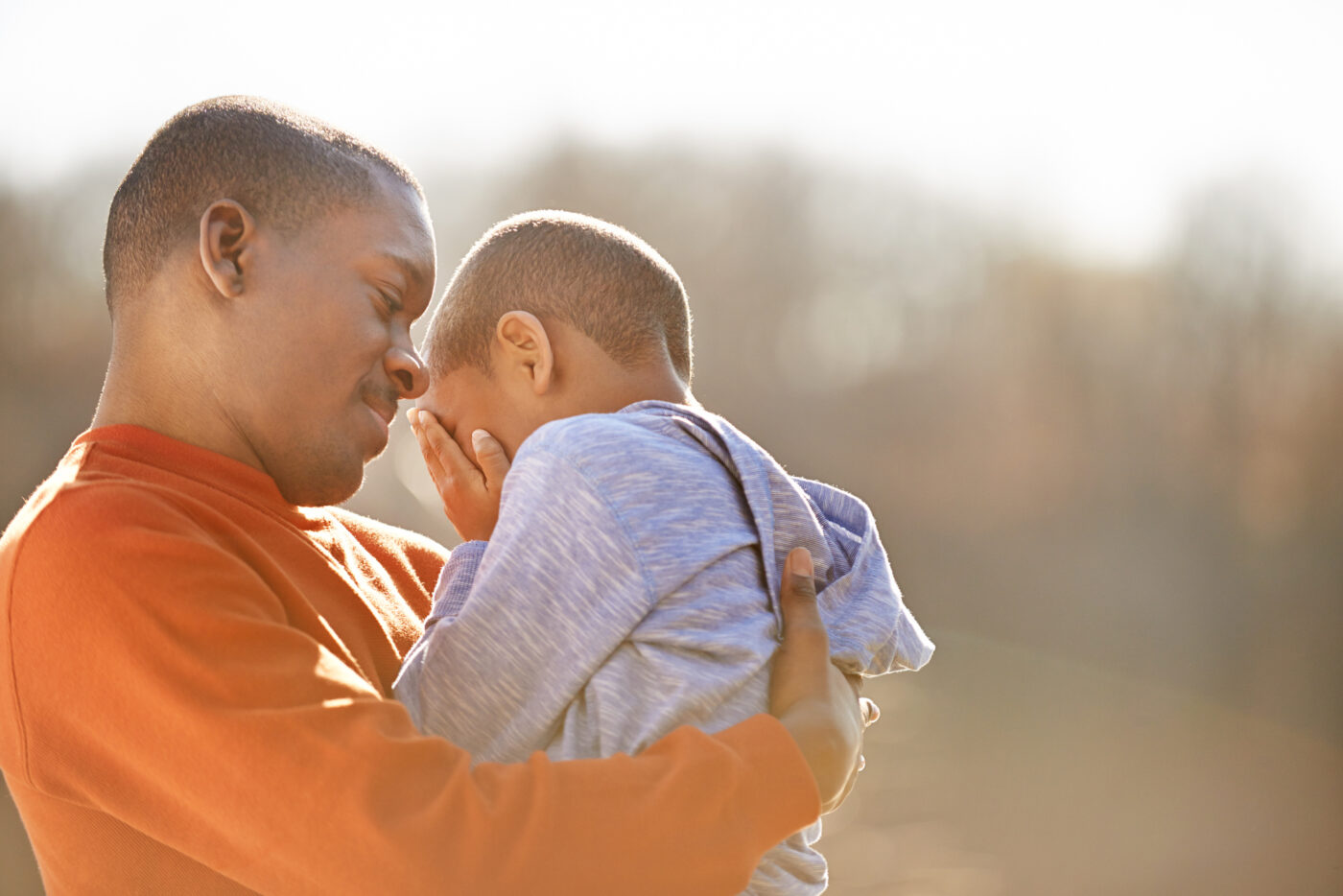You know the drill. It’s 11:30 p.m., you’re drifting off to sleep, and suddenly you sense a presence in the room. You roll over and see the small silhouette of a scared child in the doorway. It’s your son. Could be a shadow he saw on the wall or that movie he watched when he spent the night at a friend’s house. Whatever it is, your first response may not be the most helpful.
When walking with our sons through fear, we’re often tempted to cut the process short either to make it easier on ourselves or to make our sons respond in a way that we prefer. Unfortunately, this isn’t only unhelpful in the moment to a scared child, but it also prevents him from learning lessons that can serve him in the long run. Here are 3 mistakes we make when our sons are afraid.
1. We mock.
Perhaps you are thinking, “Come on, does anyone really mock their scared child?” If that’s your perspective, I would simply invite you to attend a Little League baseball game. Youth sports in general, as wonderful and positive as it can be, has a way of drawing this out of dads. If a child communicates a fear to perform or of failure, I’ve seen dads turn to teasing their sons as a motivational tactic. They either think making fun of him will cause him to break through the fear to prove Dad wrong or, in the worst cases, they haven’t done their own work with fear and their son’s fear scares them.
Levity can be a great tool to distract a scared child from something he is afraid of or to point out the truth that he need not be afraid. But that levity must always be pointed at the object, not the child. So don’t be afraid to laugh with a child at a fearful situation. Just never laugh at him.
2. We minimize.
When a scared child comes to us, minimizing his fear is almost a knee jerk reaction. In some cases, like if he’s afraid of monsters in his closet, this may be appropriate. But in many cases the rush to minimize actually short circuits the process of growth and may in fact teach your son that you don’t understand how the world works. If he’s afraid to give that speech because his peers will make fun of him or to try out for the team because he may embarrass himself, he doesn’t need you to tell him that it’ll be fine.
Rather, he needs you to hear his concerns, show empathy, and then talk through how to navigate the situation if his fears come true. How should he handle it if his peers laugh at him? What does he do if he doesn’t make the team? Courage is not about optimism but hope. We don’t help our sons by pretending bad things won’t happen, but by teaching them how to navigate the bad things when they occur, trusting that opposition isn’t the enemy of our son’s flourishing but an opportunity for it.
3. We emphasize.
On the other end of things, some of us tend to overly emphasize the thing our son is scared of. I think often this is because we’re also afraid of it. We think that if we teach our sons to be afraid of something, that will ultimately protect them. In some cases this is actually healthy, Fear is a natural response to something that is a threat. Having some fear of a dog that is snarling or a stranger who is lurking can in fact keep our sons safer. However, when that fear leads us to never allow our son to explore the neighborhood with his friends out of fear that he’ll be abducted (for example), we can do more harm than good.
Rather than emphasizing whatever fears our sons have, we need to coach them on how to handle life wisely. How can your son make good decisions to navigate a dangerous world as safely as possible? This requires that he be aware of the dangers that exist, but also that he is taught how to live a life that doesn’t allow the dangers to define his trajectory.
Sound off: What are some ways you empower your son to face fear?











Huddle up with your kids and ask, “How do you see me handle things I’m afraid of?”